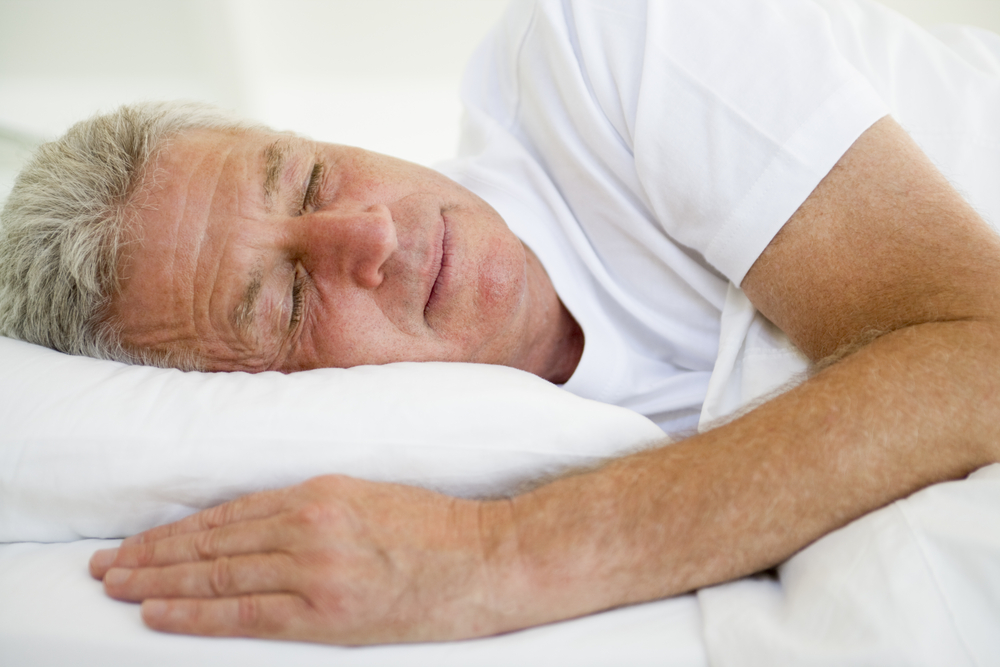 Many of my patients complaining of sweating at night are men over 40. That’s right. Typically, we think of women experiencing night sweats associated with the hot flashes caused by menopause. However, sleep hyperhidrosis (nocturnal hyperhidrosis), or “night sweats” can also occur in men, particularly those over the age of 40. Let’s look at the reasons.
Many of my patients complaining of sweating at night are men over 40. That’s right. Typically, we think of women experiencing night sweats associated with the hot flashes caused by menopause. However, sleep hyperhidrosis (nocturnal hyperhidrosis), or “night sweats” can also occur in men, particularly those over the age of 40. Let’s look at the reasons.
Causes of Male Night Sweats
One of the basic functions of sweating is to cool and detoxify the body. Most the time, it is nothing to be concerned about. However, when it becomes excessive, and starts to interfere with sleep and/or quality of life, it is important to determine the cause for it.
Keep in mind that true “sleep hyperhidrosis” is much more dramatic than getting a little warm in bed from too many covers or an overheated bedroom. In fact, many of my male patients who experience this condition tell me they wake up drenched and have to get up and take a shower and change the sheets in the middle of the night!
There are over 100 possible reasons for night sweats in general. However, these are the most common causes of night sweats in men:
• Hormonal fluctuations: Men over age 40 can experience andropause, or testosterone decreases, which can trigger night sweats and other symptoms of low testosterone.
• Hypothalamus irregularities: The hypothalamus acts like the thermostat of the body, regulating body temperature. Hormone fluctuations, illnesses, and certain medications can throw the hypothalamus off and make the body overheat causing excessive sweating.
• Foods: Certain foods like jalapeno peppers, chili, alcohol, red meat, garlic, and foods containing capsaicin consumed prior to bedtime can aggravate night sweats. A lot of caffeine can also aggravate sweating as it stimulates adrenaline.
• Medications: Many medications, notably antidepressants, Viagra, nitroglycerine, acetaminophen, and caffeine can cause night sweats as a reaction to them.
• Infection/disease: Several disease processes, especially bacterial and viral infections, can cause night sweating as the body tries to detoxify itself. Tuberculosis, lymphoma, and AIDs can present early symptoms with excessive night sweating.
• Weight lifting: If you’ve begun to lift weights, you may discover you start to have night sweats. Lifting weight increases your resting basal metabolic rate, i.e. the level at which you burn energy at rest. You might experience the bump to your BMR as night sweats.
• Stress: Stress causes surges in adrenaline and aggravates the “fight or flight” mode which in turn triggers the nerves attached to sweat glands.
What’s a Guy To Do About Night Sweats?
If night sweats are making your life miserable, interfering with your sleep, and causing you embarrassment and/or concern, the first thing you can do is rule out the possible non-medical causes such as:
➢ Environment: Could it be your room or your bed is just too hot at night? Try dialing down the thermostat and/or changing your sheets to pure cotton. Satin, silk, or flannel sheets absorb body heat and can add a lot of extra heat at night.
➢ Social/diet: Are you drinking a lot of alcohol, eating foods, taking Viagra, a few hours prior to bedtime that could be contributing to your sweating? Don’t consume alcohol or “hot” foods (see those listed above) 2 hours prior to bedtime. If you use Viagra, know that sweating may go along with your use of it.
➢ Exercise: Are you exercising heavily before bedtime, i.e, lifting weights, etc? Try moving your exercise time to earlier in the day or first thing in the morning.
If after a week or two, you are still experiencing night sweats after trying to change your environment and activity routine, the next thing to do is to see your physician. Your doctor will likely do the following:
➢ Illness review: Do you have a medical condition causing sweating? This may necessitate certain blood and/or skin patch tests for TB, HIV, Hepatitis, Epstein-Barr, and diabetes.
➢ Medication review: Do any of them have a side effect of excessive sweating?
➢ Stress assessment: Any recent serious life changes causing you excessive anxiety? Practicing relaxation techniques such as stretching exercises, a warm Epsom salts bath (contain magnesium a muscle relaxant) and/or drinking a calmative herbal drink such as chamomile tea, or hot cocoa, may help. Your doctor can also prescribe a stronger anti-anxiety medication to help get you through the stressor if your situation warrants it.
➢ Hormone tests: If you are over age 40, your doctor will likely want to test your testosterone levels to determine if you may be going into andropause.
➢ Idiopathic Hyperhidrosis: This is a type of night sweats that is not related to a medical, social, environmental cause. It affects usually the scalp, the hands and feet, and under the arms. Treatment is to cut the nerves to the sweat glands in these areas.
I tell my male patients who suffer with uncomfortable night sweats that they’re usually caused by some environmental, social, dietary, activity that can be remedied by changing behaviors so sweating doesn’t affect their sleep.
If night sweats cannot be explained by personal or social activities, it’s time to see your doctor to rule out any possible medical conditions that may be underlying your night sweats.
Stay Well,
Mark Rosenberg, M.D.
